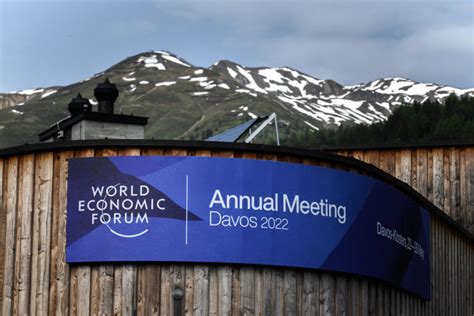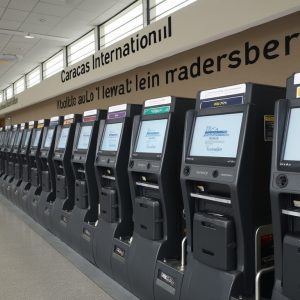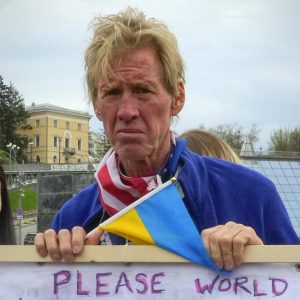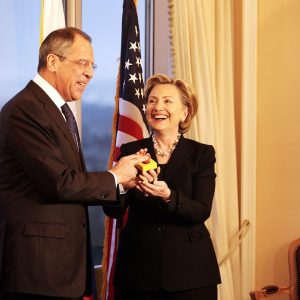DAVOS: GLOBAL ELITES IN SCRAMBLE MODE
by Jeemes Akers
“In its 50-year history, the WEF [World Economic Forum] has never been confronted with such unprecedented global issues as it now faces in 2022, as the world recovers from a global pandemic, struggles to curb the detrimental impact of the climate crisis, and steers a geopolitical storm following the invasion of Ukraine.”
Seth Cutler[1]
“The Davos meetings of the global political, financial and corporate elites came to symbolize the era of globalization, for better in the minds of its advocates and for worse in the view of its detractors. Now, many participants are convinced that the era is over, its demise accelerated by the war in Ukraine.”
Stephen Fidler and Ann Simmons[2]
What a week! Russia’s “Special Military Operation” in Ukraine enters its fourth month, China’s zero-Covid lockdown of Shanghai is now over 80 days old, monkeypox is spreading, violence on Jerusalem’s Holy Mount continues, American shelves are empty of baby formula, President Biden makes yet another gaffe in talking about Taiwan (in response, Russian and Chinese nuclear bombers fly coordinated intrusions into Japanese and Korean airspaces), a school shooting massacre in Texas, the stock market suffers its worst string of losses since World War II,[3] supply chain shortages continue, gas prices at the pump hover close to $5.00 per gallon, and fears are growing of worldwide famine.
Amid this tumult, I journeyed by car—with a friend and former student—to attend a special retirement ceremony at the College of the Ozarks, outside Branson, Missouri.
Also, during the first three days this week, (May 23-25, 2022) thousands of the world’s elites gathered for meetings at the Swiss mountain resort of Davos.
What is Davos? I like the recent description provided by Christian broadcaster Rick Wiles: a gathering of some 3,000 globalists who attempt to address the problems caused by their previous gathering.[4]
Davos also is a gathering where burritos cost $50 each.
In addition to the rising costs of food, the gathering is vastly different this year: because of the pandemic this is the first meeting since 2019; the meetings—usually scheduled in January—are being held in the spring for the first time (prompting one observer to quip participants will need to trade in their skis for suntan lotion this year); for the first time in 30 years, there is no Russian delegation in attendance (during Putin’s era, Russian oligarchs have been prominent Davos fixtures, throwing lavish parties); and, although the elites want to focus on topics like climate change, the “Great Reset,” and digital currencies, in reality it was the Ukraine-Russian war that dominated the early sessions.
I am particularly interested in how geostrategic concerns moved to center stage in Davos this year, and that stage, in turn, was dominated by pro-Kyiv enthusiasts. Two carefully targeted video speeches by Ukraine’s President Volodymyr Zelensky—the global poster boy for the war—highlighted the early sessions. On the main artery in the resort town, a Ukrainian philanthropic organization (and the Kyiv government) backed what they called “the Russia War Crimes House,” with an exhibition of photographs of what sponsors are calling documented war crimes committed by Russian soldiers during the war in Ukraine. Russian officials (shut out of the proceedings) reacted this week by saying that the Davos gathering has provided a platform to “functionaries of the Kyiv regime, who used this opportunity for frankly propaganda purposes,” and complained that the forum has moved from its previously neutral stance to an exclusive club of interests for “selected countries” such as the U.S. [5]
One of the most interesting developments during the Davos meetings was the dueling “visions of the world order at the WEF” by two of the most notable nonagenarians of our age, a virtual appearance by former US Secretary of State, Henry Kissinger (who turns 99 this week) and Hungarian-born liberal billionaire George Soros, attending in person at age 91.[6] Kissinger warned against attempts to defeat or marginalize Russia and called on Kyiv to accept the territorial losses of 2014 to end the war. His view is that America—as the world’s leading superpower—needs to create and maintain a “balance of power that protects our freedom and that of our allies at the least possible risk and cost.”[7] Soros, by contrast, insists Ukraine’s victory in the war against Putin is necessary to “save civilization.”[8] Soros sees the major problem today as a struggle between democracy and authoritarianism (especially China and Russia), or as he puts it, open society vs. closed society; Soros also opined that the invasion of Ukraine may be the beginning of the third world war.[9] Not to be outdone, German Chancellor Olaf Scholz—the only G7 leader to speak at Davos this year—said Europe had been struck by Russia’s “thunderbolt” from the war in Ukraine and insists a new “multipolar world” is emerging.[10]
This is the real lesson for today’s elites at Davos: the era of globalization, with world trade protected by the U.S. fleet and based on the U.S. dollar as the international currency, is over.[11] We are seeing the emergence of two vastly different versions of the New World Order that will replace the old globalization: one led by the political-economic-technological elites in the authoritarian states, and the other led by elites in the Western World and spillover states in Asia. As this new global competition emerges, both systems face a vast array of societal, economic, debt, and supply chain issues.
Indeed, one of the few commonalities shared by the two systems going forward will be enhanced monitoring capabilities to control potentially restive populations. One WEF presentation, for example, by the CEO of Alibaba, trotted out an individual carbon footprint tracking system. (That certainly makes me feel better about the New World Order that is coming … how about you?) Meanwhile, in China, onerous government lockdowns and a “Big Brother-like” social credit system portends the mass surveillance future in the Middle Kingdom.
The economic and financial talking heads at Davos—the champions of the globalism that was—often painted a bleak global picture in their meetings, citing among other things: regional pockets of recession, the spillover effects of the Russia-Ukraine war, global supply chain problems (with the biggest bottlenecks caused by lockdowns in China), soaring inflation with skyrocketing food and energy costs, and the residual effects of the Covid-19 pandemic.[12]
Sigh.
As a final note, my personal interest in the WEF meetings in Davos goes back several years. In the first novel of my Christian fiction trilogy, for example, I use the Swiss mountainside resort meetings as a backdrop setting where my villain—CEO of a global megacorporation—meets on the margins with prominent global elites. My ideas in this respect were influenced by David Rothkopf’s very interesting book about the global “Superclass,”[13] members of which regularly participate and rub elbows with each other in Davos and elsewhere.
[1] Seth Cutler, “Must See: Why Are Conservative Journalists Getting Arrested At World Economic Forum,” BlabberBuzz, May 22, 2022.
[2] Stephen Fidler and Ann M. Simmons, “Russia Dominates Davos Gathering to Which It Wasn’t Invited,” The Wall Street Journal, May 25, 2022.
[3] The stock market rebounded slightly by the end of this week, in part based on better-than-expected earnings reported by Chinese tech giants Alibaba and Baidu, and the prospects of less regulatory interference by Beijing. See, Rebecca Feng, “China Tech Stocks Rally,” The Wall Street Journal, May 27, 2022.
[4] Rick Wiles, “George Soros: Russia-Ukraine War Will Bring End Of Human Civilization,” TruNews, May 24, 2022.
[5] Fidler, “Russia Dominates Davos.”
[6] Walter Russell Mead, “Kissinger vs. Soros on Russia and Ukraine,” The Wall Street Journal (opinion piece), May 25, 2022.
[7] Ibid. Seasoned foreign policy observers recognize Kissinger’s balance of power concepts date back to the days of the Richard Nixon administration. Kissinger is a student of Austria’s Count Metternich, whose “balance of power” policies dominated post-Napoleonic Europe. As a personal aside, I was flying over the Tonkin Gulf during the final days of the Vietnam War, and Kissinger’s efforts to negotiate an end to the fighting.
[8] Ibid.
[9] See among others, Seth Cutler, “Must Watch: George Soros’ Warning About ‘The End Of Civilization’ Is Too Creepy To Not Be Taken Seriously,” BlabberBuzz, May 26, 2022.
[10] Tom Rees (in Davao), “Putin ‘thunderbolt’ spells end of globalization [sic], Olaf Scholz warns,” The Telegraph, May 26, 2022.
[11] See, among others, Suzanna Lynch and Jamil Anderlini, “RIP Davos Man, long live globalization,” Politico, May 25, 2022.
[12] Elliot Smith, “Top financiers and millionaires just met up in the Swiss Alps. And the mood was terrible.” CNBC, May 26, 2022.
[13] David Rothkopf, Superclass: The Global Power Elite and the World They Are Making,” (Farrar, Straus and Giroux: 2008).




